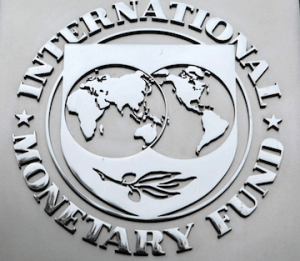Ghana’s return to the IMF: the ordinary citizen’s take
 The Government on Wednesday, July 6, 2022, commenced negotiations with the International Monetary Fund (IMF) for a support package of up to $1.5 billion.
The Government on Wednesday, July 6, 2022, commenced negotiations with the International Monetary Fund (IMF) for a support package of up to $1.5 billion.
The Minister of Information on July 1 announced the government’s decision to seek a programme from the Bretton Woods institution.
The government had earlier ruled out seeking support from the IMF when economic indicators were getting worse post-COVID-19.
Since then, there have been mixed reactions from a cross-section of the populace on Ghana’s decision to return to the IMF.
Charles is a roadside dealer in home appliances at Makola Market. He says it does not see the need for Government to keep going to the IMF for loans because of the earlier promises not to borrow and the ‘outrageous’ conditionalities that come along with such loans.
Like Charles, Rosemary Addy, a 38-year-old food vendor, an eyeglasses seller, known as Yesu Ba and a driver, felt betrayed and disappointed in the government for failing to honour its promise after claiming that the country is rich enough.
Yesu Ba, in particular, mocked the abolition of road and bridge tolls in favour of the Electronic Transaction Levy and IMF assistance, which he says will never benefit the country in any way.
“What I can say at this moment is that our president lied to us on the IMF issue,” Rosemary told the GNA.
They compared the frequency and use of loans between the former and current administrations, lauding the former for making better use of loans.
“You promised us you won’t go to IMF for loans like your predecessors because we are sitting on wealth. But you are now running to them for help so what’s the difference,” the driver said.
He said the current economy had caused them to spend more of their meagre earnings on food.
Davis Abbey, a young trader, a J.K. Arthur, an old taxi driver and Dorcas, a middle-aged food vendor in front of the main Melcom shop at Makola, saw nothing wrong with the government’s turn to IMF for help.
For this three, the Government’s borrowing is nothing new. All they were expecting is that the bailout will be used for the reasons for which they are borrowed, that is, to ease the economy.
J.K. Arthur, for instance, attributed the government’s current decision to the failure of most Ghanaians to pay taxes, particularly the recently introduced 1.5 per cent Electronic Transaction Levy (E-levy).
“If they have realised the decision of not going to the IMF is impossible, then there is nothing else I can say. They can do whatever they want. The ball is in their court concerning the economic fate of the country,” Gladys Mensah, a fabric trader at the Mokola shopping Mall stated.
Prince Bediako, a publisher, stated that going to the IMF was crucial and long overdue – a result of their promises, criticisms and accusations of the previous administration.
For him, the IMF as it stands now is the only “saviour” of the economy.
A publisher, Peter Yaw Gane, said the government running back to the IMF would not be necessary had they properly managed the economy with previous aid, loans and grants received.
He advocated for more internal funds to be raised to solve national developmental issues. He suggested the government tax all urban households a sum of 5 cedis a month to raise revenue.
Peter was, however, sceptical of the integrity of the leaders should they adopt his strategy. For him, it is the lack of this virtue, coupled with malice is brought the country’s economy to its knees.
Being the second-largest producer of Gold and Cocoa in Africa, the harsh economy in the mix of abundant natural resources, caused thousands of citizens to recently protest on the streets of the capital, Accra for two consecutive days.
Many dressed in red clothing indicated their anger, dissatisfaction and frustration with the skyrocketing inflation that has created harsher conditions of living amongst other woes.
Ghana’s borrowing history with the IMF dates back as far as 1966 shortly after the overthrow of Kwame Nkrumah, the country’s first president.
During this period, the IMF was invited by the then Government to take lead in managing the economy and supervise the privatisation of State Corporations to turn them into profitable Ventures.
This dependence continued until 1969.
Again, in January 1979, Ghana for the second time, run to the IMF after a series of corruption, economic mismanagement and military coups d’etat for a bailout under the Military regime of Ignatius Kutu-Acheampong, known for the “operation feed yourself” programme.
IMF continued to assist Ghana during the hunger crisis of 1983, 1984, 1987 and 1988 via various sponsored programmes and policies.
Moreover in 1995, 1999, 2003 and 2009 under the administrations of the late Ex-President John Jerry Rawlings and Ex-President John Agyekum Kufuor, the IMF assisted Ghana in various capacities.
Notable among them was the debt relief from 66 billion in 2003 to 23 billion by 2006 under HIPC, according to IMF data.
The country received another bailout in 2015, with the latest one being that of 2022 of which negotiations are still ongoing.
For the ordinary citizen that GNA engaged on the streets, the government’s return to the IMF connotes a sense of betrayal. This is because of earlier statements during election campaigns to cut down on excessive borrowing.
Source: GNA
